Dental Bridges Midwest City
An Easy Way to Complete Your Smile

Millions of Americans suffer from extensive tooth loss. If you’re part of that group, you know firsthand how much it can impact your quality of life. Not only does it affect your appearance, but the way you bite, chew, and speak as well. Fortunately, you don’t have to live with an incomplete smile forever. Dr. Steven Kendrick offers dental bridges to seamlessly replace one or more missing teeth. To learn more about this method of tooth replacement, continue reading or schedule a consultation with our team today!
Why Choose Midwest City Dental Center for Dental Bridges?
- Advanced Dental Technology for More Accurate Results
- Locally Owned & Operated Dental Practice
- Personalized Approach Delivered by Dentist & Dental Team
What Is a Dental Bridge?
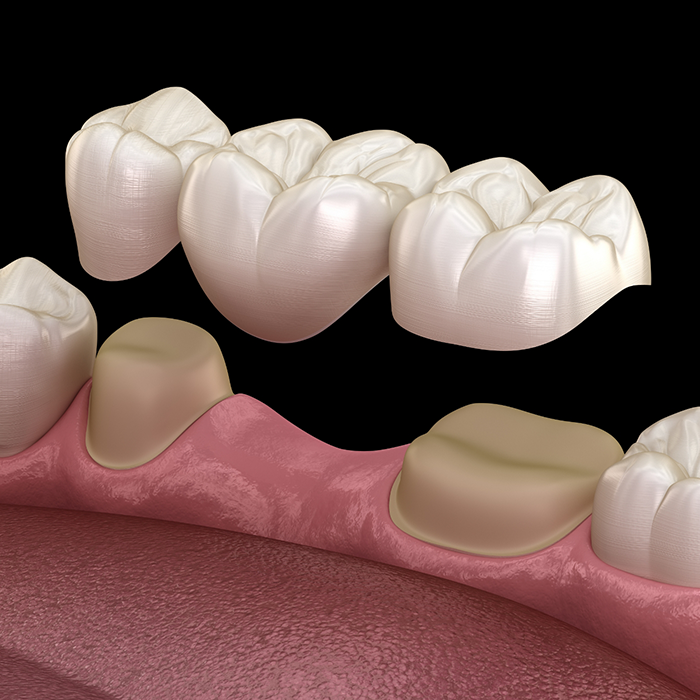
A dental bridge is a fixed prosthetic made out of one or more dental crowns affixed to each other. It’s custom-made from natural-looking materials like ceramic and porcelain. Using the two natural teeth as anchors, it fills in the space left by one or more missing teeth. The dental bridge allows you to chew, smile, and speak confidently after tooth loss. It also prevents the surrounding teeth from drifting out of place.
Types of Dental Bridges
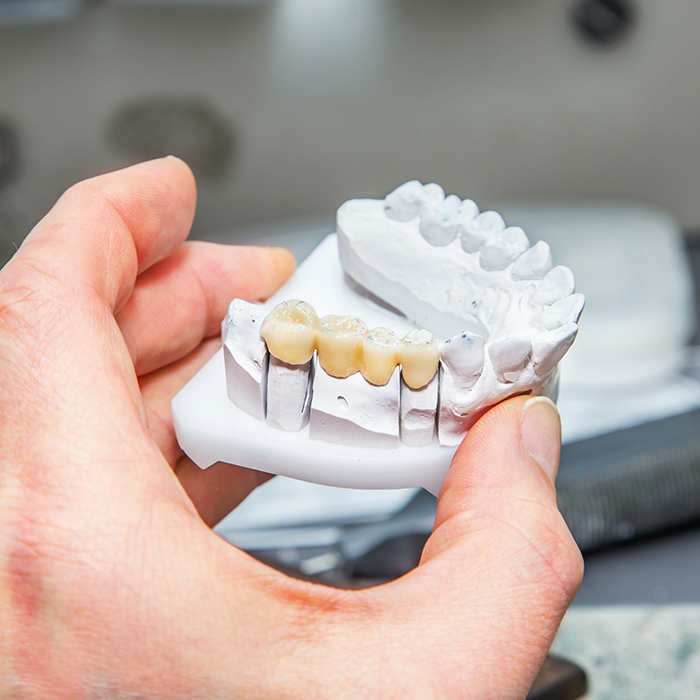
At your initial consultation, Dr. Kendrick and our team will perform a thorough oral examination to determine which treatment option is right for you. We’ll discuss your special goals and inquire about your medical and oral health history. Based on our findings, we’ll recommend one of the following solutions:
Traditional Dental Bridge
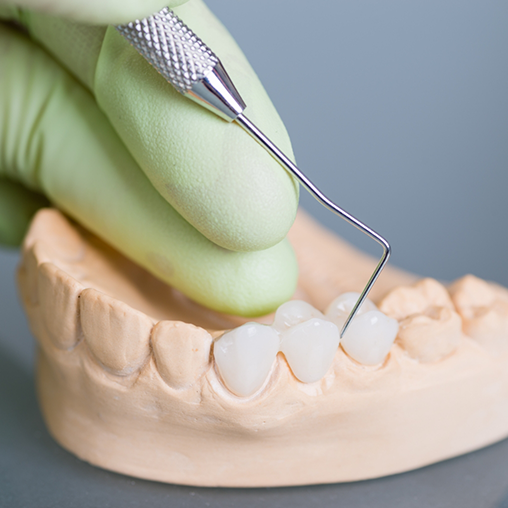
A traditional dental bridge is designed to replace one or more missing teeth that are right next to each other. The prosthetic is anchored to your mouth with dental crowns. Keep in mind that this option requires the alteration of your natural teeth to replace the missing ones.
Implant Bridge
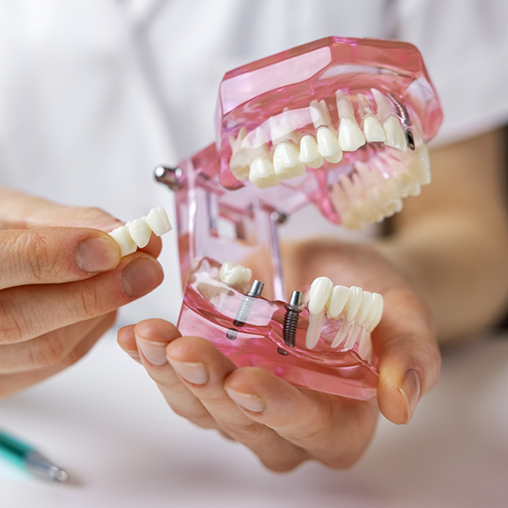
If you’re looking for a more durable solution, we offer implant bridges. These are secured to your mouth using dental implants instead of crowns. Each titanium post is surgically inserted on either side of the gap in your smile. Once they’ve fused with the jawbone via osseointegration, we’ll attach a dental bridge to the implants to replace your missing teeth. With this solution, no alteration is required of your existing teeth.
The Benefits of Getting a Dental Bridge
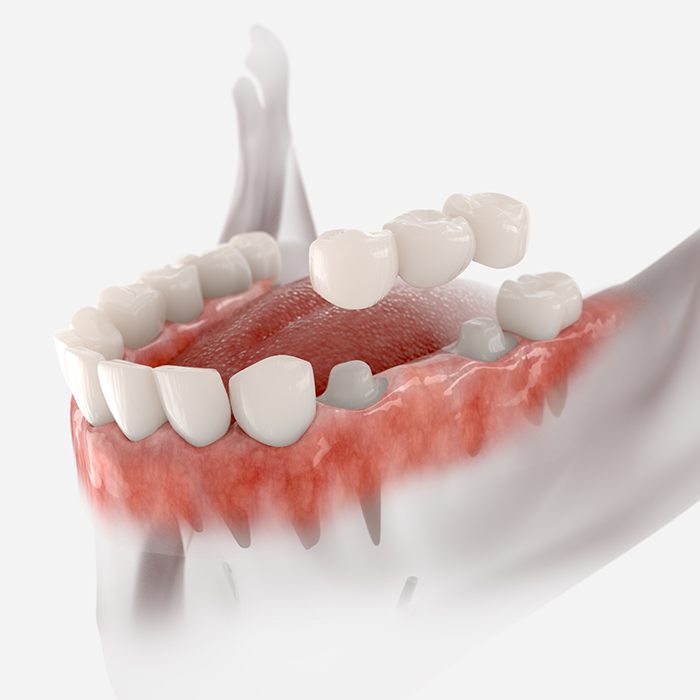
You can expect to reap a range of benefits with dental bridges, including:
- Improved oral and overall health
- Long-lasting results (up to 15 years with traditional dental bridges and over 35 with implant-retained)
- Natural-looking restorations that blend seamlessly with your existing teeth
- Easier to maintain and take proper care of
Are you interested in discussing your upcoming dental bridge treatment? Schedule an appointment with Dr. Kendrick or get in touch with Midwest City Dental Center today!
Dental Bridges FAQs
How Long Can a Dental Bridge Last?
Dental bridges typically last 5-15 years. Their longevity depends on a few factors like the materials used, the location of the dental bridge in your mouth, and how well you care for your smile. To elaborate, high-quality materials (we usually use porcelain or zirconia) will naturally last longer than cheaper alternatives that are a short-term solution at best. The location matters as well since dental bridges toward the back of your mouth withstand a lot more pressure from chewing. And, of course, your oral hygiene routine will impact the condition of your teeth, gums, and dental bridge.
Is Getting a Dental Bridge Painful?
Before your procedure, we’ll numb your teeth with a topical anesthetic to ensure you’re completely comfortable. After your teeth are prepared to support a dental bridge, they may feel slightly sensitive for the next few days. The good news is you can easily manage your discomfort by taking over-the-counter pain medication as needed. If you’re receiving an implant bridge, you may experience mild soreness after your oral surgery. However, diligently following your aftercare instructions will help keep your pain to a minimum.
Can You Take a Dental Bridge Out?
No, dental bridges are designed to stay in your mouth for years after they’ve been placed. You shouldn’t be able to take the restoration out by yourself – only Dr. Kendrick or another dental professional can do that. While you may have heard partial dentures referred to as “removable bridges,” that’s not accurate. One of the most notable differences between partials and bridges is that partials can be removed at any time.
How Many Teeth Can a Dental Bridge Replace?
Dental bridges can replace a single missing tooth or several in a row. As a result, they are ideal for patients who are missing 1-4 teeth. If you are unsure whether dental bridges are right for addressing your specific dental needs, don’t hesitate to schedule a personal consultation with our dentist in Midwest City – he will help you decide.
